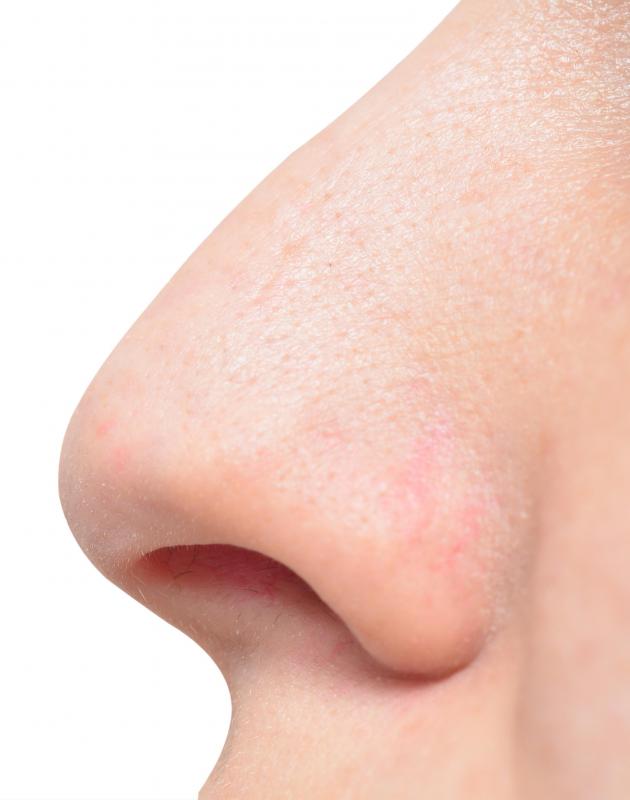At TheHealthBoard, we're committed to delivering accurate, trustworthy information. Our expert-authored content is rigorously fact-checked and sourced from credible authorities. Discover how we uphold the highest standards in providing you with reliable knowledge.
What Is Nose Cancer?
Nose cancer is a malignant condition that affects the nasal cavity, namely the nasopharynx. Also known as nasopharyngeal cancer (NPC), nose cancer is initiated by cellular mutations within the nasal cavity. Several factors, including Epstein-Barr virus, can increase one’s chance for developing nose cancer. Depending on the staging of the malignancy, a combination of anti-cancer therapies may be used to treat NPC.
Nasopharyngeal cancer is usually detected after the tumor has matured enough to trigger symptoms. Frequently forming in the back of the nasal cavity, the abnormal growth may be detected with the aid of endoscopic technology. A small, flexible tube outfitted with a miniature camera is inserted into the nasal cavity to evaluate the suspected tumor. If a biopsy determines the growth is malignant, imaging tests, including magnetic resonance imaging (MRI), may be conducted to evaluate its staging, or severity.

As with so many cancers, there is no known, definitive reason for nasopharyngeal tumor formation. According to many medical organizations, including the Mayo Clinic, the Epstein-Barr virus is a condition commonly associated with a majority of nose cancer diagnoses. Regular exposure to air pollutants, such as cigarette smoke, also appears to increase one’s risk for developing nose cancer. Although the diagnosis is unusual in the United States, it is not uncommon for some individuals to demonstrate a genetic predisposition for developing nasopharyngeal tumors.

During initial tumor development, individuals experience nasal congestion that they may dismiss as allergy-related or the start of a head cold. Some people may suddenly become increasingly susceptible to ear infections or develop chronic headaches or tinnitus. As the malignancy matures, episodic nosebleeds can develop or one's saliva may adopt a bloody tinge.

If nose cancer remains undiagnosed or treatment is delayed, the individual possesses a significant risk for complication, including metastasis, which is the migration of the cancer beyond the nasal cavity. Some individuals may develop an overactive immune response to the malignancy as well. Known as paraneoplastic syndromes, these anomalous immuno-reactions can interfere with nervous system function and present in a variety of ways, including impaired cognitive and muscle function. Treatment for paraneoplastic syndromes is dependent on symptom presentation and generally involves the administration of immunosuppressant and anticonvulsant medications.

Radiation therapy is an integral part of any treatment plan for someone with nose cancer. Administered directly to the tumor, radiation therapy can trigger a variety of side effects, including irritation at the administration site. Rarely is the tumor surgically excised. Depending on the staging of the nose cancer, some individuals may also undergo subsequent chemotherapy to eliminate any remaining cancer cells. Given intravenously or orally, chemotherapy can likewise cause several side effects, including nausea, weight loss, and fatigue.
AS FEATURED ON:
AS FEATURED ON:
















Discuss this Article
Post your comments